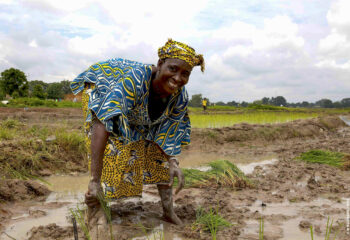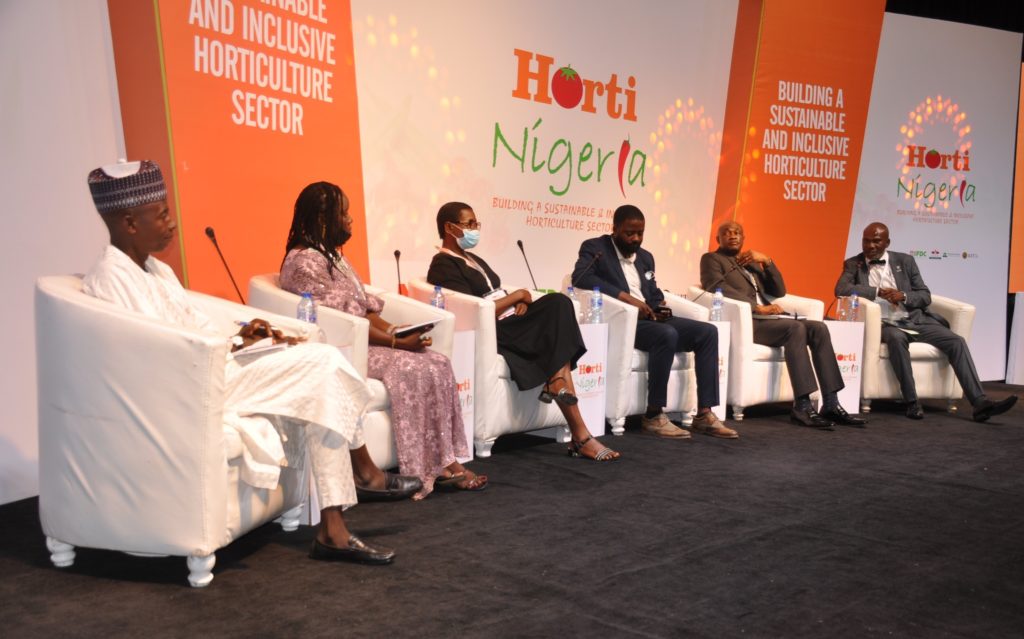
On March 3rd, IFDC and its partners, East West Seed Knowledge Transfer Foundation, Royal Tropical Institute (KIT), and Wageningen University & Research Center, officially launched the HortiNigeria program, funded by the Embassy of the Kingdom of the Netherlands (EKN) in Nigeria.
The launch, which took place in Abuja, was attended by representatives of many organizations crucial to the project’s success. Attendees represented IFDC’s partners and donors, including the Nigerian Federal Ministry of Agriculture and Rural Development, EKN in Nigeria, East-West Seed Knowledge Transfer, Wageningen University and Research, and KIT Royal Tropical Institute.
Nigeria’s Minister of Agriculture and Rural Development, the honorable Dr. Mohammad Abubakar spoke during the event— reminding guests that the country’s various ecologies, soil, and climatic conditions are suitable for horticulture. He attributed the country’s low yields to the adoption of poor seeds, adding that the program will provide an immense competitive advantage and potential for Nigeria to assume a leadership role in horticulture production and exportation globally.
“It is very exciting to see our largest food security program in Nigeria taking off,” noted Mariska Lammers, First Secretary of Food Security and Climate, EKN. “The horticulture sector here offers many opportunities, and we believe The Netherlands can add the most value. Nigeria is currently unable to meet the local demand for vegetables with a supply gap of 13 million metric tons. The horticultural sector employs a high number of women and youth, and increased horticultural production will lead to better availability and affordability of nutritious foods.”
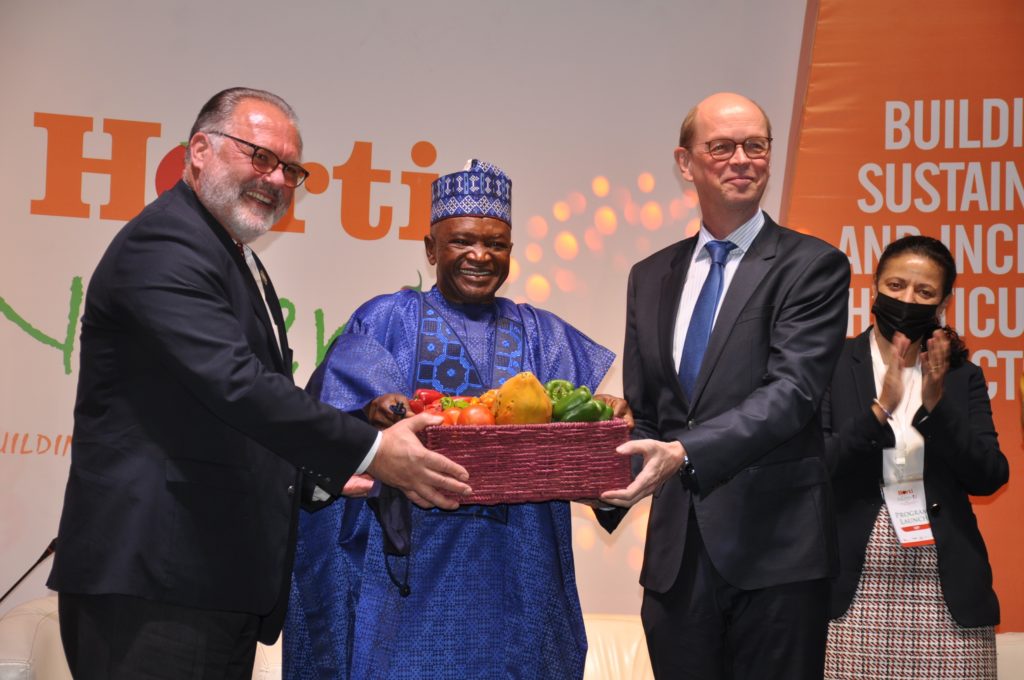
Also speaking at the launch ceremony, His Excellency Harry van Dijk, Dutch Ambassador to Nigeria, said the program could boost capital for farmers, traders, processors, and small and medium enterprises (SMEs) by six million euros. He also shed some insights on the program’s approach, saying, “We look at the entire food system, beyond primary production. We envision a Nigerian food system that provides sufficient healthy food to a fast-growing population. Furthermore, we strive for a food system that creates jobs and entrepreneurship opportunities and that respects the natural environment.”
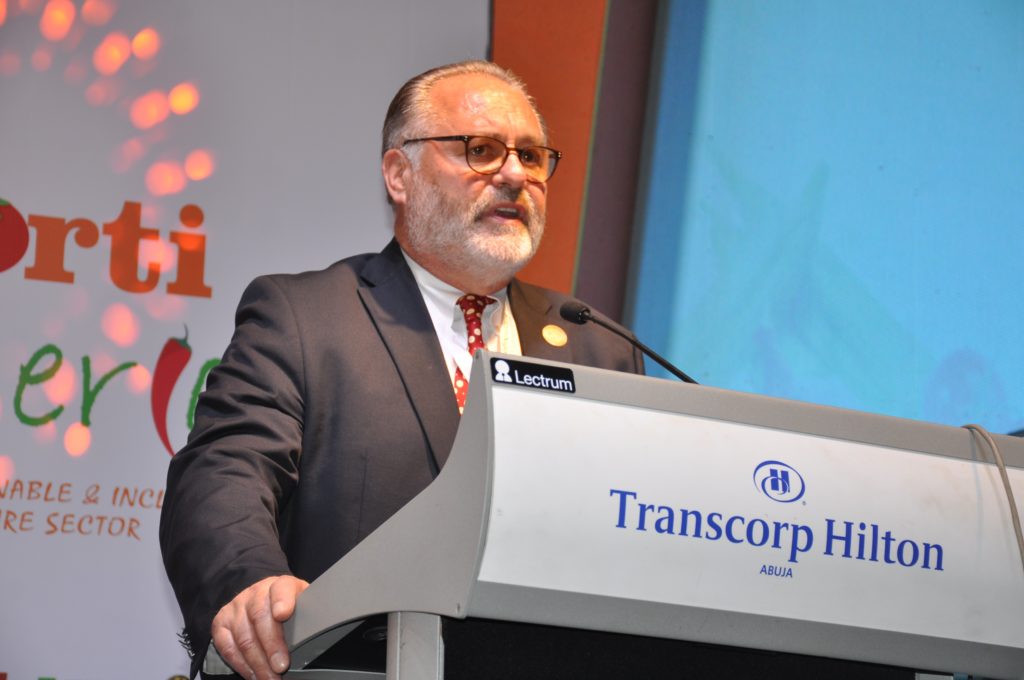
IFDC President and CEO, Albin Hubscher, used the launch event as an opportunity to explain why IFDC primarily focuses on Africa and South Asia, sharing, “It is very clear that, in these areas, we count close to 800 million hungry people, people who go to bed every evening hungry and without sufficient nutritious food, and we are all here to help change this. The second reason why we are in sub-Saharan Africa is that the projections are that 9 out of 10 people coming from the poorest and less privileged areas will come from Sub-Saharan Africa by 2030, and it behooves all of us to do as much as possible to prevent or at least reduce that statistic.”
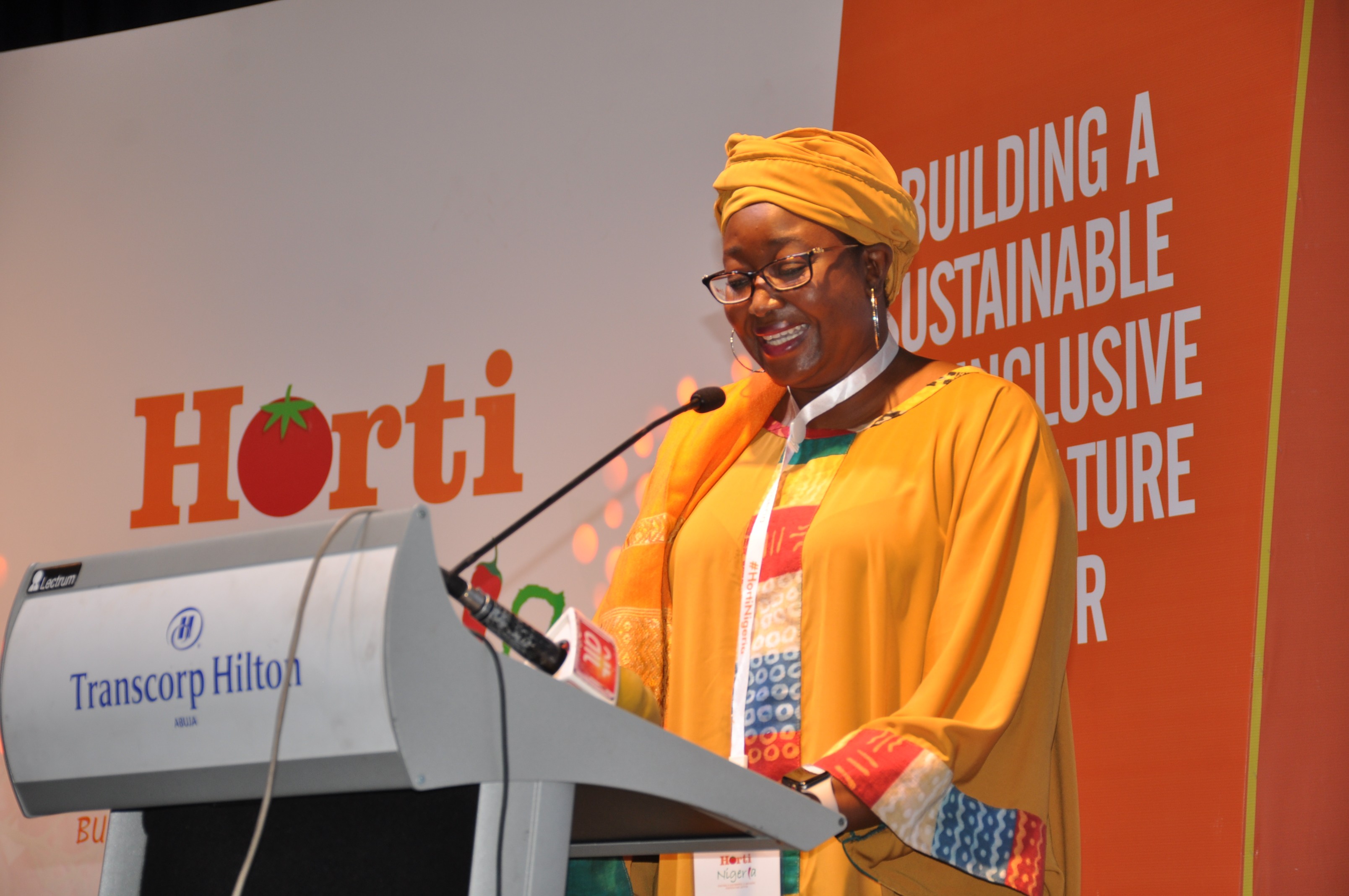
Dr. Oumou Camara, Regional Director for IFDC North and West Africa, concluded the event by noting the importance of the program’s launch in our current context: “Today’s context is one that is particularly challenging for all actors in the agriculture value chain. From the insecurity posed by terrorism, the health threats posed by COVID-19, and despite the global food and energy crises, this context calls on us to keep pushing— now more than ever.”
The HortiNigeria program is aimed at supporting Nigeria in building a sustainable and inclusive horticulture sector that will contribute to national nutritional and food security; it will be implemented in the Nigerian states of Kano, Kaduna, Ogun, and Oyo. By the end of 2025, HortiNigeria will have educated about 60,000 farmers (50% youth; 40% women) on producing greater numbers of high-quality vegetables for their markets. HortiNigeria will focus on the tomato, okra, onion, and pepper value chains; however, the program will also reduce seasonal risks and impacts by piloting innovative production systems for 2,000 entrepreneur farmers in the country.
HortiNigeria Launch News Coverage
- The Guardian: Dutch Government Mobilises €6 million Investment into Nigeria’s Agriculture Sector
- Newsverge: HortiNigeria Targets 9.7m Euros in Income for Smallholder Farmers
- AgroNigeria: HortiNigeria Project Targets 60,000 Smallholder Farmers, €9.7m Annually
- The Nation: 40 Percent of Nigerians Live on Less than $1 Daily
- This Day Live: FG, Dutch Firms Target N4.42bn in Drive to Harness Horticultural Sector
- The Nigerian Tribune: Nigeria’s Vegetable Demand Exceeds Supply By 13 Million Metric Tons


